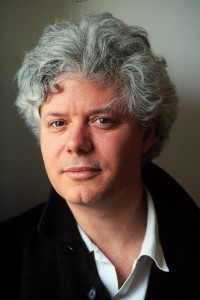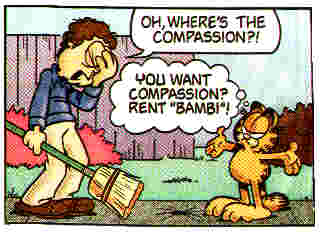10/06/2006
Tolerance as acceptance
 The first question that was raised in the debate I went to last night – a debate called “Tolerance: we accept?” which was part of the Ramadan Festival in Amsterdam – was: What is tolerance?
The first question that was raised in the debate I went to last night – a debate called “Tolerance: we accept?” which was part of the Ramadan Festival in Amsterdam – was: What is tolerance?This seems to be a simple standard question, but it is in fact a very complicated question and the answer you give determines which personal perspective forms the starting point to take part in the discussions, it determines the which discours the debaters choose to make use of.
The Cambridge Dictionaries Online provides two different definitions of the word tolerance:
- Tolerance as acceptance: willingness to accept behaviour and beliefs which are different from your own, although you might not agree with or approve of them.
Example: “Some members of the party would like to see it develop a greater tolerance towards contrary points of view. - Tolerance as the ability to bear something unpleasant: the ability to bear something unpleasant or annoying, or to continue existing despite disadvantageous conditions.
Example: “I think men are less tolerant of stress than women.”
So the word tolerance can have two different connotations:
The ability to bear something unpleasant
I disagree with this group of “others”, e.g. foreigners, I think they are barbarians, they are annoying me, I maybe even hate them, but I have decided that I will tolerate that they are living in my country (as long as they behave according to my standards). A person from the UK in the audience said that the word tolerance in English mainly has got this negative connotation, like: “you can stand there in the corner of the room, but only if you don’t bother me”. The meaning is then similar to the Dutch word “gedogen”, we disapprove of something, e.g. drugs, but still we allow it to exist.
Tolerance as acceptance
 Tolerance as acceptance is something totally different. To really accept fundamental differences is not easy. To accept that people express beliefs and show behaviour that you strongly disapprove of, but that you actively state that you think that everybody should have the right to behave the way they want to (as long as it is according to the law). The word acceptance is confusing in this respect. Harry van den Bergh (President of the Dutch Refugee Council) formulated his definition of tolerance during the debate as: to fully accept the opinions, behaviour and way of life of other people. What does it mean to fully accept the views and behaviour of other people? It can lead to cultural relativism. My views are subjective, just like the views of others. Our outlook on life is determined by our personal background. There are no universal truths or principles of justice. Who am I to claim that women are oppressed in another culture, why would I know that better than the people of that culture themselves? If I fully accept the opinions of other people it means I don’t judge them. But this can give very serious difficulties. It means women circumcision, stoning to death, honour revenge and other violent practices from other cultures should in principle be allowed in the Netherlands. Who are we to judge over the heads of people from another culture that these practices are bad? Anything is possible in a country if it is not possible to judge behaviour in a moral way, only from within a certain culture.
Tolerance as acceptance is something totally different. To really accept fundamental differences is not easy. To accept that people express beliefs and show behaviour that you strongly disapprove of, but that you actively state that you think that everybody should have the right to behave the way they want to (as long as it is according to the law). The word acceptance is confusing in this respect. Harry van den Bergh (President of the Dutch Refugee Council) formulated his definition of tolerance during the debate as: to fully accept the opinions, behaviour and way of life of other people. What does it mean to fully accept the views and behaviour of other people? It can lead to cultural relativism. My views are subjective, just like the views of others. Our outlook on life is determined by our personal background. There are no universal truths or principles of justice. Who am I to claim that women are oppressed in another culture, why would I know that better than the people of that culture themselves? If I fully accept the opinions of other people it means I don’t judge them. But this can give very serious difficulties. It means women circumcision, stoning to death, honour revenge and other violent practices from other cultures should in principle be allowed in the Netherlands. Who are we to judge over the heads of people from another culture that these practices are bad? Anything is possible in a country if it is not possible to judge behaviour in a moral way, only from within a certain culture.In fact I think that cultural relativism is an impossible position. If I make a judgment about a practice in another culture, my judgment is influenced by my personal perspective. But it is not completely subjective, I can give arguments for why I consider a certain practice as morally wrong. And the fact that my judgment is not absolute and objective, doesn’t mean that it doesn’t matter to me. If I realize that I don’t possess the absolute truth, it doesn’t mean that I can personally agree with anything, I still strongly believe in my own views, I am not willing to accept the opinions of other people if I fundamentally disagree with them.
So I will never fully accept the views and behaviour of a pedophile, I don’t support the position of a cultural relativist, who could say: “Ok, if it is acceptable in your culture / way of life to have sex with children, who am I then to stand above it and to judge it as wrong, if this is acceptable in your culture then it is acceptable for me as well.”
No, I judge according to my own standards and values and in my view the pedophile is harming children, so what he does is wrong.
This means that “to fully accept the opinions of others” should not be understood as: "anything the other thinks is an acceptable view for me". If I accept that the other is totally different, it does not mean that I find his views acceptable, it just means that I allow that other person to have those views, I don’t force the other to become like me. But it is very well possible that I totally accept that the other is different and that at the same time I totally disagree with him and that I continue to do so. So I don’t try to convince the pedophile of my ideas that sex with an adult is much better, I accept that he disagrees with me at that point. I will not try to stop him from thinking his own thoughts, I will only try to stop him from harming children.
 For Paul Scheffer (another panel member, a publicist and prominent party member of the Dutch Labour Party) the core of tolerance consists of defending the rights of those you completely disagree with (within the boundaries of the existing laws), as in the famous quote from Voltaire. Paul Scheffer is a very interesting publicist and a very good debater, one of best ones I know. But at the same time I strongly disagree with him, because I think he mostly defends the interests of people like him, Dutch, highly educated, rich, not the people who need the most support in my opinion: immigrants with not much education, poor, not many chances. But it is very difficult to counter his argumentation with good contra arguments.
For Paul Scheffer (another panel member, a publicist and prominent party member of the Dutch Labour Party) the core of tolerance consists of defending the rights of those you completely disagree with (within the boundaries of the existing laws), as in the famous quote from Voltaire. Paul Scheffer is a very interesting publicist and a very good debater, one of best ones I know. But at the same time I strongly disagree with him, because I think he mostly defends the interests of people like him, Dutch, highly educated, rich, not the people who need the most support in my opinion: immigrants with not much education, poor, not many chances. But it is very difficult to counter his argumentation with good contra arguments.And it was frustrating for me that I didn't hear any of these contra arguments in the panel discussion. Harry van den Bergh - from the Refugee Council - would be the most logical person in the panel to defend my personal views. But he spoke with a "geitenwollen sokken" style (soft sixties) and his speech was full of generalizations, clichés, simplifications, contradictions, and wishful thinking.
Some things he said:
The reason why we are not so tolerant anymore in the Netherlands, is because we are loosing our religion, in the past we were all very tolerant and respectful and civilized but because many people don’t go to church anymore, that is why we are no longer tolerant (and the Protestants, Catholics, Jews etc. were always so tolerant to each other and to non-believers, foreigners etc?).
 The third panel member was also an interesting person and a good debater, his name was Claude Grunitzky, writer of the book “Transculturalism, How the World is coming Together”, and he was introduced by the moderator as a “self-made man”. He was born in Togo, where he lived as a child. Then he moved to France, then to UK, US, and back to France. His family name is Polish, and his roots are also Jewish. When he said that being Polish is one of his identities, Harry said a bit shocked: “No, you are not Polish!”
The third panel member was also an interesting person and a good debater, his name was Claude Grunitzky, writer of the book “Transculturalism, How the World is coming Together”, and he was introduced by the moderator as a “self-made man”. He was born in Togo, where he lived as a child. Then he moved to France, then to UK, US, and back to France. His family name is Polish, and his roots are also Jewish. When he said that being Polish is one of his identities, Harry said a bit shocked: “No, you are not Polish!”Why not? Why would it be impossible for someone to be black and to be Polish at the same time? How can Harry know if Claude is Polish or not, and why not leave that up to him if he feels Polish or not.
So I was disappointed that the “lunatic liberal” position (as my views are called in Orkut) was not very well defended in the debate, although fortunately many good remarks were made by the audience. I was thinking during the debate – and I have thought about this often before – at which point is it that I fundamentally disagree with Paul Scheffer, why do I think that his views are harmful to our multicultural society?
Let’s go back to Voltaire’s quote of defending the rights of the people you strongly disagree with. Voltaire is clearly belongs to a Western European culture / tradition. Freedom of expression is considered very important in this tradition. It doesn’t matter what you say, what matters most is that you can say anything you like. Freedom in general is a very important value, we should have our private space to do what we want, nobody should restrict our actions unnecessary. Especially the Dutch culture is a direct one: just say what you mean, no turning around it. According to Hofstede the Dutch are a very “mondig” people (for this word no translation exists, it means to be direct and assertive with words, with expressing ourselves).
So Paul Scheffer finds it very important to help the others, immigrants (or any others), to defend their rights with regard to freedom of expression. But what if the others themselves don’t attach much value to freedom of expression? The idea of tolerance as acceptance is that you accept cultural differences as long as they don’t harm the society. Tolerance as acceptance should go much further then to say: “I accept that you are there as long as you don’t bother me”. It means: “I accept you as equal to me and I will treat you with respect, I will try to understand how you think and how you live, because when I understand that, I will better be able to work together with you, to live together with you in our multicultural society.
A certain minimum of cultural relativism and flexibility is then needed, I think.
 If Paul really wants to do that, to defend the rights / position of those he disagrees with, then he should do more than only to defend their right to freedom of expression.
If Paul really wants to do that, to defend the rights / position of those he disagrees with, then he should do more than only to defend their right to freedom of expression.I said that to him, after the debate, I said:
"Take the issue of the Danish cartoons. If you disagree with the people who feel insulted by the cartoons, if you want to defend them, I think it doesn’t only mean that you support that they can say what they think.
Real acceptance of differences means trying to put yourself in their shoes. Imagine that you would feel terribly offended by the cartoons, that you get very very angry. If you defend their position it means you should support the right not to be insulted unnecessarily, and that in the end leads to a limitation of the freedom of expression.”
Of course Paul didn’t agree with that. He says that he debates with the people he disagrees with (he does and that is very good) and he said that he personally treats his opponents with respect. That is true as well, I said, but there are many people in the society who don’t treat their opponents with respect, that was my point. Then Paul said that the debate would become very silent if nobody should ever insult anybody else. I agree with that. It is inevitable, when different cultures live mixed, that people feel insulted by others. If an imam doesn’t shake the hand of a non-Islamic woman, the woman might feel insulted, while the imam feels insulted if the woman forces him to shake hands with her. If I walk in a short dress in the street, strict Muslims can feel offended, but if I cannot walk in the cloths I like and which are normal here, I feel insulted.
So, the only thing I ask is that people think about it with more care, before they say something. Before they start shouting at the other / insulting the other, that they think about if it is possible to say what they want to say in a more respectful way. The cartoons were unnecessary offensive, the way Theo van Gogh expressed his opinions were unnecessary offensive, the way Geert Wilders expresses his views as well, etc. So before you start to talk in stereotypes, exaggerations and aggression, count to ten and think if you can say it in another way. Paul also said that he spoke to an imam who thought that his religion is perfect. Paul asked if it is acceptable for the imam if others criticize his religion and the imam said no. Paul said that he cannot accept that, he thinks he should have the right to criticize the Islam, also if the imam feels offended and treated unjustly by that. In that I agree with Paul. The imam has got the right to believe that his religion is perfect, Paul can accept that that is his view. But he doesn’t have to agree with him, and the imam cannot force him to stop expressing his views. If we want to criticize the Islam we should do that in a respectful way, so not by calling Muslims goat fuckers (Van Gogh), not by calling Islam a backward barbarian religion, but by pointing at specific Islamic practices and to explain why we think these practices are morally wrong. Then maybe the imam will be willing to keep talking with us and then he can explain why he thinks it is not wrong, or not the true Islam, and then we can have a constructive dialogue.
If you don’t do that, if you don’t try to step into the shoes of “the others”, if you only tolerate their presence and defend their rights according to your own standards, then the gap between the “us” and the “them” cannot be bridged. It is not enough to defend their rights only, in order to build a bridge between the two sides, both sides have to start building, so that the groups can meet each other in the middle. If you do it as Harry said: “we are willing to accept them but they don’t adapt”, then you can never get more than half a bridge, it is not only from the immigrant side that construction work should be done, it should be done also from the side of the natives. So to say: “we accept that you are there” is not enough, we should also say: “we will try to understand you and we will try our best to build a good bridge together with you”.
***
And when I typed "tolerance" and "accept" in Google images, I found this cartoon :-)
So Garfield is not really an example of tolerance and compassion...
your friend rofl exposed himself in above link,what you say about it explain please.
What can I say about it?
This is all about tolerance / acceptance and lack of it, indeed (so you posted your comment at the right place).
The person you are talking about is a friend of me indeed at Orkut indeed. Although I don't agree with his views at all. He violated the rules of the Europe community and he was banned. It is often a dilemma for a moderator: how much tolerance do I expect from my members, and how much intolerance / bashing am I going to accept?
I agree that Rolf's views are harmful towards peace, both in Orktut and the real world. But as a person he is good I think, and if possible I prefer not to ban him from International Relations, I will try to stop him from bashing - if he would start bashing - so that he can stay, and the dialogue continues (I would ban him if he keeps violating IR rules but he didn't do that so far). By the way I think it is better if we have this kind of talks inside of Orkut (scrapbook) instead of outside.
<< Home






